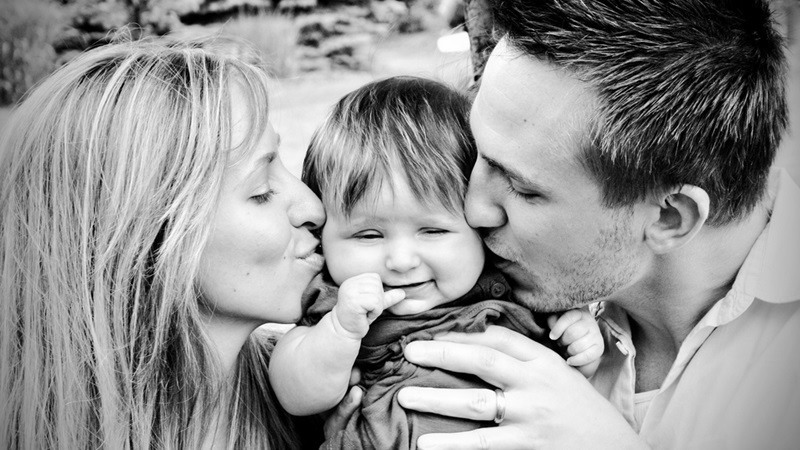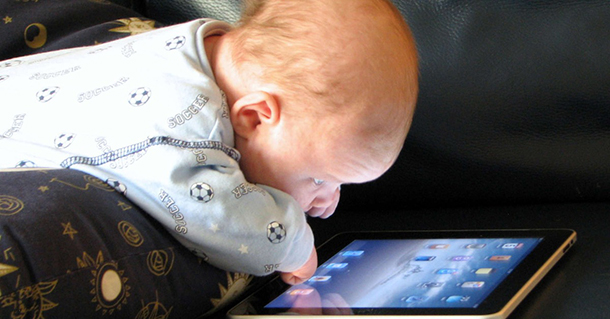Let’s look at a few blunt (and disturbing) facts about our society. Children are more overweight than any other time in history. They play more video games and watch more television than ever before. Children are being overstimulated with soda and cartoons and then we pump them full of drugs when they can’t focus inside a classroom. Parents are getting divorces at a higher rate than any other time in history, which strongly impacts a child’s sense of worth and personal development. Not to mention, there are a whole host of false parenting beliefs and cultural beliefs that have been proven to cause brain and emotional health problems within children:
“Ill-advised practices and beliefs have become commonplace in our culture, such as the use of infant formula, the isolation of infants in their own rooms or the belief that responding too quickly to a fussing baby will ‘spoil’ it,” says Darcia Narvaez, Notre Dame professor of psychology reporting on a recent study.
How deep do the effects of poor parenting go?
 Aside from obvious forms of child abuse of all forms, there are some more deep-rooted and subtle forms of abuse that lie at the heart of depression and feelings of inadequacy.
Aside from obvious forms of child abuse of all forms, there are some more deep-rooted and subtle forms of abuse that lie at the heart of depression and feelings of inadequacy.
When teenage boys are told to “grow up” and that men don’t cry, and girls are told they have to look and act a certain way and act like a “lady”. The definition of a “man” and a “woman” are almost entirely socially engineered concepts that get reinforced at a very young age.
In other words, we are taught that the core of our natural expression and behaviour is flawed, and that there is something defective about us because of how emotions present themselves within us. Have you ever heard your mom or dad tell you to be a “man” or start acting like a “lady”? What does this do to your sense of adequacy, worthiness, and how does this play a role in the development of our conscience?
Is it possible that there are other deep-rooted belief systems within older generations that have negatively impacted the emotional and mental development of youth?
Kids are taught that crying to their parents a lot means they lack maturity or strength as an individual, and that needing to be around both mommy and daddy makes them less of a “big boy” or a “big girl”. Being a “momma’s boy” is something that gets mocked and made fun of by other children as being a sign of weakness, and that needing to be constantly hugged or shown affection by either parent is a sign of weak will or neediness. In reality, society has it backwards:
“Breast-feeding infants, responsiveness to crying, almost constant touch and having multiple adult caregivers are some of the nurturing ancestral parenting practices that are shown to positively impact the developing brain, which not only shapes personality, but also helps physical health and moral development,” says Narvaez.
Parents are taking shortcuts
 Studies have also shown that responding to a babies emotional needs when they are crying contributes to their ability to empathize with other people and even has a correlation with a higher IQ. But what happens in our society when a baby, or young child, starts crying?
Studies have also shown that responding to a babies emotional needs when they are crying contributes to their ability to empathize with other people and even has a correlation with a higher IQ. But what happens in our society when a baby, or young child, starts crying?
Well to start, children spend more time in highchairs, carseats, carriages, and strollers than ever before. And when kids start crying or throwing a fit, parents give them electronics and put cartoons in front of their faces to occupy them and provide them with a false sense of relief. According to a study done in 2013, 38% of children in the United States under the age of 2 have used an iPhone or an iPad.
There is less direct touch, less breastfeeding (especially when babies are in public), and less emotional patience than they need at that time in their life. Children don’t need to be watching 4 hours of television a day. They need to be spending time being nurtured by their parents and developing their left and right brains with their support.
What does this do to a child’s psychology? It teaches them that their emotions are an inconvenience, that there is something wrong with their emotional reactions, that entertainment is preferable to emotional availability, and that their concerns aren’t worth enough to be taken seriously by their parents (which makes them feel unloved or like something is wrong with them).
This can be summed in the following two points: The bar on proper parenting has been lowered, and parents are taking more and more shortcuts. Have you ever heard parents brag about how they ignore their kids when they cry, how they hit them, or how they get them to shut up by playing a movie for them? Why are these forms of parenting even accepted, let alone joked about?
Proper parenting gets ridiculed

Mothers and fathers who nurture their kids usually get made fun of by other parents as being too soft or spoiling their child too much. If you don’t yell at them enough, you are going too easy on them. If you don’t hit them, you are being too easy on them. Even spending a lot of time with their children gets ridiculed by parents as not giving the kids enough space or not allowing them room to grow and explore life on their own. “They won’t grow up to be a man. They won’t grow up independent.”
Keep in mind, the generation of parents who ridicules proper parenting also encourages filling children’s minds with distractions and electronics, pumping drugs into their children when they can’t focus in school, joking about hitting their kids, and spend more time filming their children’s school rehearsal’s with their Ipads than they do actually cheering them on.
The result? Emotional neglect, resulting in the highest rate of youth suicide in the Western world and is the third highest cause of death in people between the ages of 15 and 24. But there is some hope here. Professor Naevaez says the following will help repair and reverse the effects of emotionally neglectful parenting:
“The right brain, which governs much of our self-regulation, creativity and empathy, can grow throughout life. The right brain grows though full-body experience like rough-and-tumble play, dancing or freelance artistic creation. So at any point, a parent can take up a creative activity with a child and they can grow together.”
It ultimately comes down to stepping up as a parent and nurturing your child in a way that you know that you would want to be nurtured if you were still a child. Social engineering has made parents more irresponsible and docile which is preventing proper brain development and emotional growth, but with a proper wake up call and some healing time with their children, parents can begin to meet the emotional needs of their children before they develop into forms of depression or addictions.

